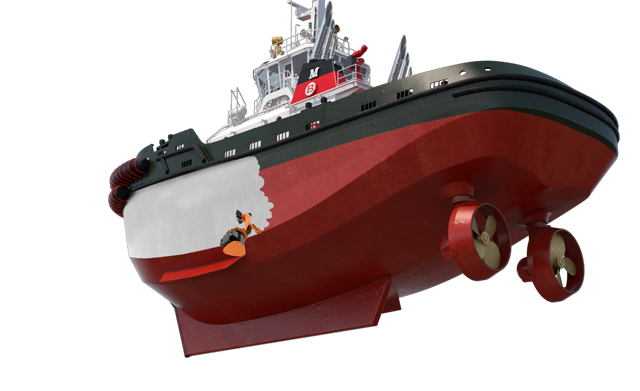Composite and Plastics Grinding
The precise grinding and polishing of high-tech composite materials is a major challenge. These composite materials made of glass fiber, Kevlar, carbon fiber and epoxy resin are used in trains, ships, airplanes and wind turbines, among others - to name just a few.
CUMI AWUKO Abrasives GmbH
Our product range includes abrasives for a wide variety of applications. Whether grinding contoured surfaces or polishing composite surfaces to achieve a first-class finish.
Grinding composite materials
Composite building materials play an increasingly important role for many companies today. Starting from transport, energy, electronics technology to medical technology and construction. The focus is on resource-saving refinement of the products. By using the best raw material materials, AWUKO makes it possible to significantly improve the grinding work on composite materials and to reduce the time required.
It should be noted here that the grinding of plastic composite materials generates a lot of heat, which can cause the composite materials to deform. This can be prevented by reducing the frictional heat with sharper abrasive and the speed at which the abrasive is removed. Since adding the abrasive with sanding dust reduces the performance of the abrasive and promotes heat development, AWUKO Abrasives offers two heat-reducing features. The first feature is the use of a stearate coating.

Another option is the newer multi-hole or mesh dust grinding wheels. These discs greatly reduce dust pollution by preventing the abrasive from becoming clogged with grinding dust. The shape of the abrasive prevents this. "Pilling". This prevents the heat from developing and protects the product surface.
Repair of composite surfaces
When repairing composite surfaces, there are different approaches to restoring the finish. Depending on the composite material, scratches and scoring with hard lacquers such as synthetic resins or epoxy resins can make the component shine in its old glory. If the composite surface has to defy moisture and UV rays, gelcoat is suitable (synthetic resin thickened with silica, mostly unsaturated polyester UP or epoxy resin). Unevenness can then be ground with AWUKO KP73A in grain size P400 or P600 with 30 microns. In the second (usually wet) grinding process, grit P800 to P1000 (15 microns) follows. Finally, we recommend polishing liquids such as 3M Compound, Finishing Liquid or Polarshine 35 Polishing Compound to remove roughness.
The best polishing results are achieved when finishing with lambswool or foam pads and a machine speed of around 1800 revolutions per minute.